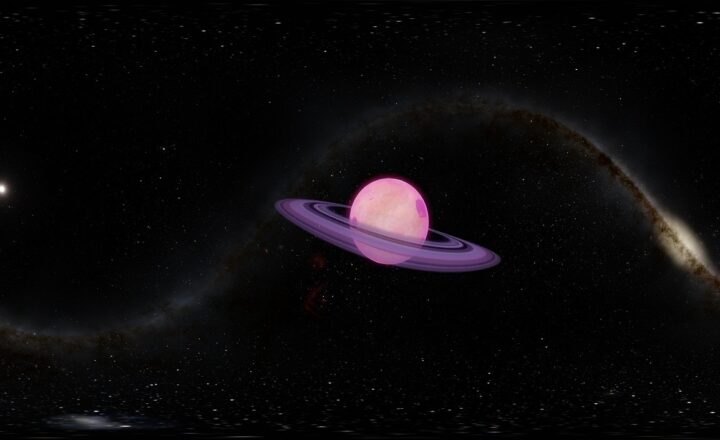The Potential for Earth-Like Exoplanets to Host Oceans, Forests, and Deserts
November 12, 2024

In the vast cosmos, hundreds of billions of stars are twinkling, many of them accompanied by their own solar systems. With advancements in technology, humanity has ventured into the exploration of exoplanets—planets that orbit stars outside our solar system. One intriguing possibility that arises is whether these exoplanets could potentially host ecosystems akin to Earth with oceans, forests, and deserts.
We frequently ponder if we are alone in the universe, and in our quest for answers, the investigation of Earth-like exoplanets is paramount. In this article, we will delve into the factors that enable exoplanets to develop oceanic bodies, vast forests, and arid deserts. We will explore the criteria necessary for habitability and highlight notable exoplanets that fit this mold.
1. What Makes a Planet Earth-Like?
An Earth-like exoplanet is characterized by several crucial factors that enhance its potential to support life as we know it. These factors include:
- Location in the Habitable Zone: A planet must fall within the ‘Goldilocks zone’ or habitable zone, where temperatures are just right for liquid water to exist (not too hot or too cold). Water is essential for life as we know it.
- Atmospheric Composition: The planet should possess an atmosphere capable of supporting life. This atmosphere would include essential gases like oxygen and nitrogen, and should ideally protect the surface from harmful radiation.
- Geological Activity: Geological activity can also be indicative of a planet’s ability to support life. Planetary processes could recycle nutrients and maintain a balance essential for sustaining ecosystems.
- Stable Climate Conditions: A planet should have a climate capable of sustaining various forms of life over time. This stability promotes the development of complex ecosystems.
These criteria lay the groundwork for determining whether an exoplanet could potentially be more than just a cold world floating in the void of space.
2. The Role of Oceans in Supporting Life
The presence of oceans is a crucial factor in assessing the potential for life on exoplanets. Oceans help create stable climate conditions, regulate temperatures, and allow for chemical interactions that are vital to biological processes.
To better understand the potential for oceans on exoplanets, we can consider some critical aspects:
- Water Source: An exoplanet must have a sufficient water source, which may be delivered by icy comets or asteroids colliding with the planet during its formation.
- Sustainable Conditions: The right temperature and atmospheric pressure must exist for water to remain liquid. Without these, water would either freeze or evaporate.
- Oceanic Features: The formation of oceans could also give rise to features such as currents, tides, and weather patterns, making the planet more hospitable to life.
Notable exoplanets that have garnered interest for their potential to harbor oceans include K2-18b and TRAPPIST-1e. These planets have been located within their stars’ habitable zones and exhibit characteristics that could allow water to exist in liquid form.
3. Forests: The Lungs of an Exoplanet
Forests play a vital role in maintaining the ecological balance on Earth by producing oxygen and absorbing carbon dioxide. For an exoplanet to host forests, several conditions need to be met:
- Biodiversity Potential: Existence of flora and fauna would depend on suitable climates, leading to biodiversity similar to Earth.
- Soil Quality: Rich soil capable of supporting plant life is essential for sustaining forests. This soil must contain adequate nutrients and organic matter.
- Water Availability: Consistent access to water sources like rivers, lakes, or precipitation is necessary for the sustenance of forests.
Research suggests that planets like LHS 1140 b, with its estimated size and potential atmospheric conditions, could potentially support lush, thriving forests.
4. Deserts: The Necessity of Diversity in Ecosystems
While oceans and forests are essential for life, deserts also play a critical role in biological diversity. Deserts can host unique ecosystems that exemplify survival strategies in extreme conditions. For exoplanets to support desert ecosystems, the following factors are important:
- Precipitation Patterns: A natural lack of water in specific regions can lead to the formation of deserts. Understanding precipitation and weather patterns is critical.
- Temperature Extremes: Deserts are often characterized by extreme temperatures, both hot and cold, affecting the types of organisms that can thrive there.
- Adaptation Mechanisms: Just like on Earth, organisms in desert environments would evolve unique adaptations to survive the harsh conditions.
The exoplanet GJ 581d is often discussed in the context of its potential to host desert-like conditions alongside other ecosystems. This diversity adds layers of complexity to the exploration of extraterrestrial life.
5. Conclusion: The Search for Habitable Worlds
As technology advances, our ability to detect and analyze exoplanets will continue to improve. Pinpointing celestial bodies that might host oceans, lush forests, and vast deserts presents a fascinating frontier in the search for life beyond Earth.
The investigation of these worlds not only unveils the intricacies of potential ecosystems, but also challenges our understanding of life in the universe.
As humanity continues to explore these distant planets, we broaden our horizons and ignite aspirations of discovering new life forms and unfathomable wonders that lie beyond our own solar system. Regardless of whether or not we find life, the pursuit of knowledge in astrobiology might very well change the trajectory of human understanding and existence itself.
If you are intrigued by the mysteries of the cosmos and the potential for life elsewhere, stay tuned as astronomers continue their quest to unlock the secrets of exoplanets capable of hosting oceans, forests, and deserts. The universe holds intriguing possibilities waiting to be uncovered.








